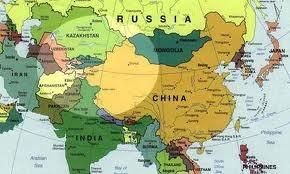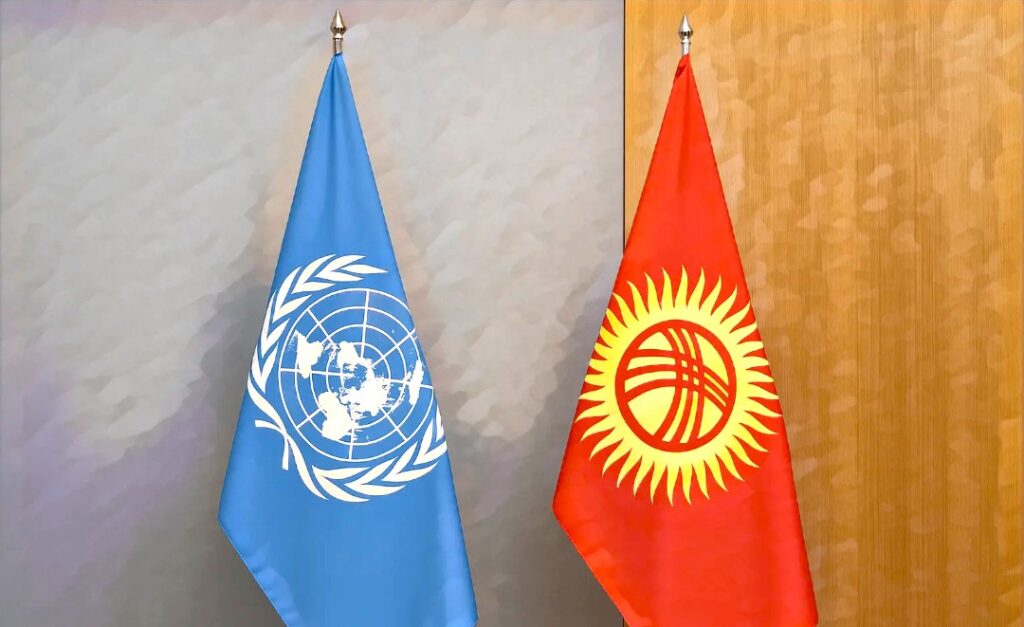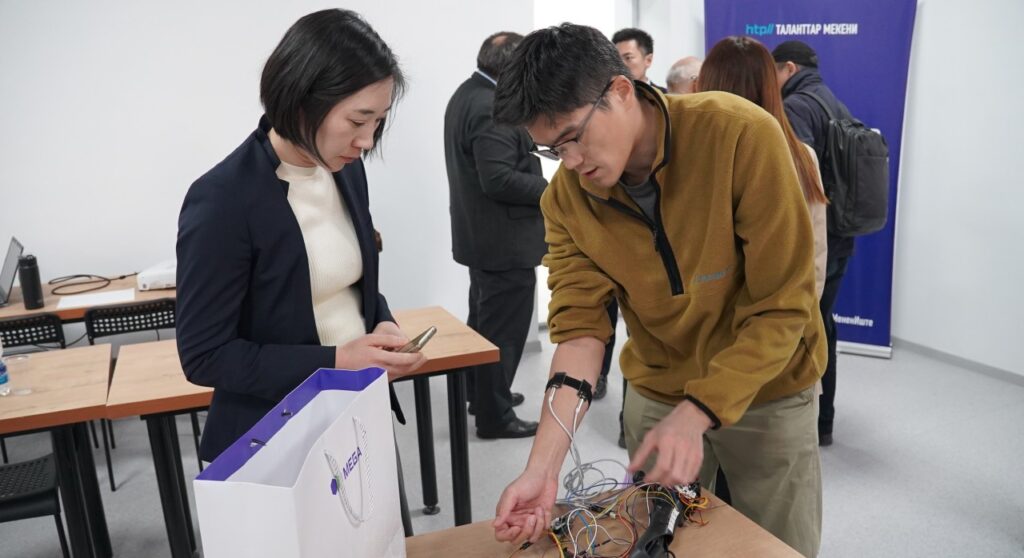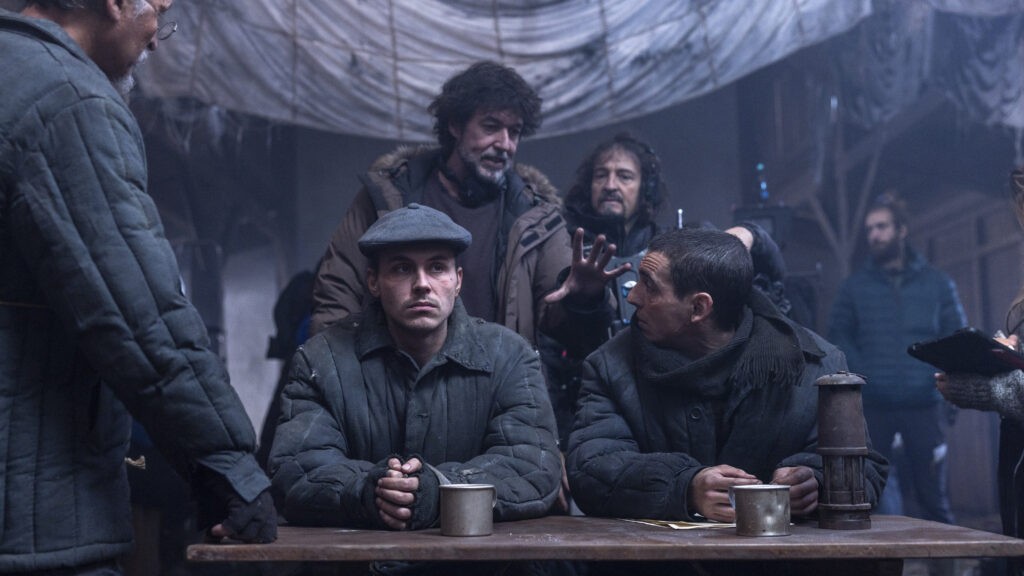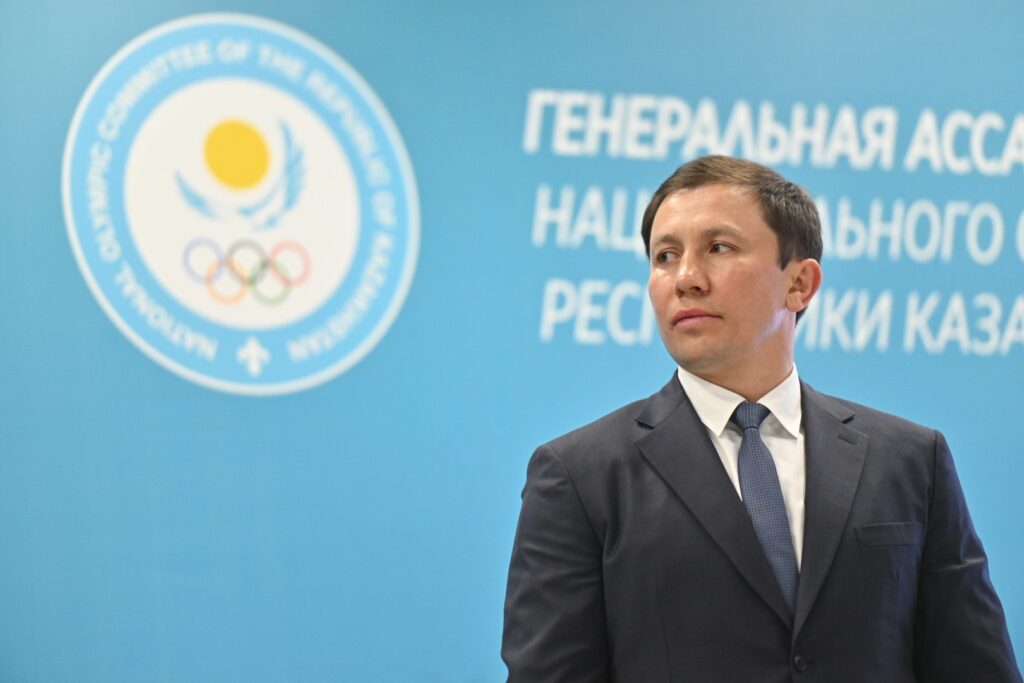BISHKEK (TCA) — The Times of Central Asia presents to its readers Stratfor’s Global Intelligence, a weekly review of the most important events that happened in the world — from Europe to Middle East to Russia to Central Asia to Afghanistan to China and the Americas.
The Week That Was
This week was a colorful display of the many fundamental contradictions of the European project. On Tuesday, the Italian foreign minister hosted what was intended to be a low-key dinner in Rome for the founding members of the European Union — Germany, France, Italy, the Netherlands, Belgium and Luxembourg. Following what was likely a spirited dinner debate, the core members publicly reaffirmed their belief that an “ever closer union” was the answer to these challenging times. Meanwhile, Italy’s sharp tongued Prime Minister Matteo Renzi, not one for delusional pep speeches, gave an interview where he likened the European Union to the orchestra that continued playing on the Titanic as it sank to the bottom of the ocean. The core members sitting around that dinner table may all cherish the idea of a tighter union bound in sickness and in health, but the differences splitting them apart are profound. Germany and the Netherlands lead a fiscally conservative northern bloc that is increasingly skeptical of any EU initiatives that would entail transferring their wealth to the south. France and Italy lead the southern bloc in pushing for a complete shift in eurozone mentality that would allow for more public spending and tolerate higher inflation. So, when Italy echoed France’s call this week for a eurozone finance minister to mutualize risk and ensure a pair of strong German arms will be there to catch it if it falls, all Germany can think about is how to wield Europe’s institutions to whip reckless spenders into shape.
The markets are catching on. Among the market turmoil that hit Europe this week, the most heavily covered aspect was falling bank stocks. But another trend also emerged in the sell-off, one that had not been seen since the tense days of 2012. It was a divergence in bond yields between the core and periphery countries, as investors bought safe German bonds, while selling those of riskier Mediterranean countries. The intimation here is that, as in 2012, markets have begun to seriously consider the prospect of a eurozone breakup, and are making sure they will not be left holding the bonds of indebted southern countries in case that should happen. The biggest loser of this market skepticism has been Portugal. That is because it is holding onto its investment grade credit rating by its fingernails, with one downgrade by the Canadian ratings firm DBRS enough to consign it to Junk status. Such a downgrade would create problems within the eurozone, since it would make Portuguese bonds ineligible for the European Central Bank’s ongoing quantitative easing program, and a Portugal outside that program could find its debt costs spiraling rapidly, bringing back all too recent memories of the sovereign debt crisis.
However, there are still a few steps to go. Portugal has now agreed to its budget with the European Commission, with the agreement including extra measures that the Commission can impose after three months should Portugal not reach its targets. That should allay some market fears about the Portuguese fiscal position in the shorter term. Secondly, the ECB is widely expected to unveil substantial monetary easing measures at its March meeting. What we need to watch for is whether these new measures will be enough to meet market expectations. But with Europe’s deeper problems on display, that is not assured, and Portugal could get sucked into the market turmoil. Under those circumstances the European institutions may be forced to consider some form of new bailout for the Iberian country.
Germany’s position is only going to get more difficult with time. While Italy and Spain are gaining more confidence to stand up to Berlin and Brussels, France’s far right National Front party is trying to use the British model in renegotiating its relationship with the European Union. National Front leader Marine Le Pen told reporters this week that she would enter negotiations with the European Union over the euro and Schengen area. A return to the franc is still highly unsettling for most French voters, but even mainstream contenders in the 2017 elections will be discussing the need to reconfigure the ECB’s mandate away from the Deutsche Bundesbank template. The degree of Euroskepticism will vary, but the message is the same: the model is broken.
A meeting in Munich between U.S. Secretary of State John Kerry and his Russian counterpart Sergei Lavrov ended up yielding a cease-fire agreement for Syria. But a meeting in Munich does not necessarily translate to results on the Syrian battlefield. For one thing, the cease-fire excludes groups like Jabhat al-Nusra, which is concentrated in northern Syria. That means Russia and Syrian government forces can proceed with their operations in and around Aleppo while claiming that they are targeting Jabhat al-Nusra and Islamic State rebels. But even if this is a partial and temporary cease-fire at best, it does point to an opening in negotiations between Moscow and Washington. Turkey will do its best to push the United States to enable an operation to set up a safe zone in northern Syria to absorb the growing number of refugees.
While bolstering its negotiating position in Syria, Russia was also keeping a close watch this week on a NATO meeting in Brussels. Poland did not get its wish of a NATO commitment to permanent bases in the east, but the alliance is beefing up an existing plan to rotate troops to maintain a brigade combat team in Eastern Europe. As part of its response to the incremental NATO buildup this year, Russia would like to follow through with plans to set up air base in Belarus, but it seems the Europeans are keeping Minsk enticed enough with the promise of sanctions easing and financial aid to keep some distance between Minsk and Moscow. A visit by the Visegrad Group (Poland, Czech Republic, Hungary and Slovakia) Feb. 9 to Belarus was part of the effort to get a read on Minsk’s intentions to assure NATO allies that there will be limits to Russia’s response.
Full Articles
Fish: The Overlooked Destabilizer in the South China Sea
China’s reorientation toward the sea is particularly disruptive given Asia’s geopolitics. Although Europe and Asia share the Eurasian landmass, their geopolitics differ fundamentally. Europe, a continent crowded with nations vying for space, is defined by land borders that ebb and flow like the tides. East Asia, by contrast, is defined by the sea and ringed by populous coasts, a space defined by maritime transit and resources. The sea serves as both the barrier and the pathway between the mainland and the archipelago. Europe’s land borders might be contentious, but they can at least be clearly delineated. Maritime borders are ephemeral and subject to diverse concepts of use and passage.
There is one very real and actively exploited resource in those waters that is often overlooked: fish and other marine foodstuffs. Clashes over fishing grounds are frequent, volatile and mostly out of the control of the various regional governments. Given the size of the seas, maritime patrols are infrequent. The absence of strong regulation or enforcement allows room for gray areas to be exploited and territorial waters to be violated. Poor regulation and enforcement of boundaries make the security situation even more opaque and complex. Fishermen are both exploited by and exploit nationalist government sentiments and willfully push the boundaries of fisheries. As with the agricultural sector, the fishing industry and its countless small-scale producers, can have a disproportionate effect on political decision-making.
Iran’s Duplicitous Nuclear Strategy
Iran’s nuclear deal with the West has come into effect, but that does not mean international concerns about Tehran’s nuclear program have been fully resolved. Iran has continued to develop certain military technologies, including ballistic missiles, that could someday be used to support nuclear capabilities. Meanwhile, it has kept its activities at several military installations around the country cloaked in secrecy.
Satellite imagery provided by our partners at AllSource Analysis gives a clear picture of the dual nature of Iran’s approach to its nuclear program throughout its negotiations with the West. The pictures of the Parchin Military Complex, taken in July 2010 and January 2016, respectively, show how Tehran removed potentially incriminating traces of activity at the site while talks were ongoing. It also constructed an underground facility within the complex, where research and weapons development could be concealed.
Gauging India’s Nuclear Power Potential
For India, 2016 could be a transformative year in nuclear power. After years of isolation, India’s nuclear energy sector is ready to grow, with several new reactors scheduled to come online over the next 12-24 months. New Delhi wants to expand nuclear capacity to meet growing energy needs for its population and economy. India’s Feb. 4 ratification of the international Convention for Supplementary Compensation for Nuclear Damage, which seeks to increase reparation for damage caused by nuclear mishaps and encourage cooperation in nuclear energy and safety, was done in part to resolve concerns among potential foreign partners. India will need as much foreign investment and technology as possible to reach its ambitious goals.
In Ukraine’s Conflict, Rumors of Compromise Grow
The Ukrainian conflict has already had its fair share of fruitless negotiations and cease-fire breakdowns. Simply continuing the status quo would understandably be more likely. But the drop in global oil prices and the subsequent weakening of the Russian economy, as well as Russia’s extensive involvement in Syria, could be giving new life to negotiations among Kiev, Moscow and the West. A grand bargain over Ukraine is far from near, but there may be room for compromise over what so far have been intractable issues.
In Colombia, Some Rebels May Be at the Mercy of the Military
While Colombia’s peace negotiations with the Revolutionary Armed Forces of Colombia (FARC) steadily approach their end, a second set of talks has yet to begin. The country’s second-largest militant group, the smaller and militarily weaker National Liberation Army (ELN), has not opened formal negotiations with the state. But the guerrillas’ survival depends on such talks; the Colombian government, with its superior military, does not need a negotiated peace as much as the ELN does. For its part, the ELN will probably try to open negotiations in 2016, but the movement’s divisions and intransigence could eventually leave it at the mercy of Colombian security forces.
The Week Ahead
The heads of government of the European Union will meet in Brussels on Feb. 18 and 19 to discuss the bloc’s most pressing issues: a potential British exit and the migration crisis. Countries in Eastern Europe are concerned about plans to limit the access to social benefits to EU citizens working in the United Kingdom, while France and Germany are looking for ways to accommodate British demands to be protected from decisions affecting the eurozone. EU members will also discuss the status of the bloc’s negotiations with Turkey, a week after Berlin, Athens and Ankara asked NATO to take a bigger role in the refugee crisis.
Hungarian Prime Minister Viktor Orban will have a busy week. On Feb. 15 he will meet his peers from the Visegrad Group to reach a common position on the negotiations between the European Union and the United Kingdom. Then, on Feb. 17, he will meet with Russian President Vladimir Putin in Moscow to discuss the financing the Paks nuclear project. The project is facing obstacles from the European Commission, which claims that the contract did not go through a competitive bidding process and that it qualifies as state aid. Orban met General Electric Vice Chairman John Rice on Jan. 20 and the two discussed the potential for U.S.-Russian technical cooperation for the project. Inviting GE into the project could help Hungary resolve the European Commission’s concerns. It will be important to watch for details on financing, as Hungary fears that Russia may not follow through on its 10 billion euro ($11.2 billion) credit line to finance the project as promised. That said, the Russian Finance Ministry has reaffirmed that the funds have been set aside.
Over the weekend, U.S. President Barack Obama will meet the heads of state of the 10 Association of Southeast Asian Nations (ASEAN) countries (minus the outgoing President of Myanmar, Thein Sein) at the Sunnylands estate in California. It will be an opportunity for Obama to try and build support for a regional security and economic agenda. The regional security agenda will center on the maritime disputes in the South China Sea, with the United States seeking to rally the ASEAN countries to pressure China to abide by the U.N. Permanent Court of Arbitration’s ruling on disputed islands, expected by the end of May. China has refused to recognize the authority of U.N. tribunal and will not accept any ruling on it. The United States has been trying hard to get regional powers to be more active in collectively pressuring China on its maritime claims. But ASEAN is divided on the issue and would rather mitigate Chinese aggression through economic deals, leaving the United States with mixed results. The summit will include discussions on how to enhance trade between the United States and ASEAN, and assess progress of the Trans-Pacific Partnership (TPP) agreement signed earlier this year. The United States will seek to encourage TPP signatories to ratify the agreement, identify points of relationship between the TPP and the ASEAN Economic Community, and encourage Thailand and Indonesia to join the TPP.
Iran’s Guardian Council on Feb. 16 will submit a finalized list of approved candidates for the Iranian parliamentary elections to the Interior Ministry, after which time candidates will have one week for campaigning. Iran is gearing up for elections for the 290-seat parliament and for the 88-seat Assembly of Experts, and the 12-member Guardian Council reviews the competency of every candidate. The Guardian Council finalized a list of 161 approved Assembly of Experts candidates on Feb. 10, and now candidates are allowed to begin two weeks of campaigning before the Feb. 26 elections.
The approved list unsurprisingly confirms that the next Assembly of Experts will continue to be dominated by conservative hard-liners. However, the Guardian Council did approve the candidacy of reformist-linked moderate conservatives Hassan Rouhani and Ali Akbar Hashemi Rafsanjani, but upheld the disqualifications of several prominent moderates like Hassan Khomeini and Majid Ansari. To move forward with controversial ideas floated by Rafsanjani, such as the formation of a supreme committee instead of a single Supreme Leader, the hard-liners’ firm control over the Assembly of Experts would need to be diluted with more moderate candidates, something that is extremely unlikely based on the list of approved candidates. For the parliamentary elections, reformist groups are not hopeful that they can land more than 30-50 seats maximum, similar to current number of reformists in the Iranian parliament.
On Feb. 16, Ukraine will hold a parliamentary session that could potentially lead to a vote of confidence against the government of Ukrainian Prime Minister Arseniy Yatsenyuk. The Ukrainian premier has come under increased criticism over stalled reform efforts in the economic and judicial sectors, with junior coalition partners like the Self Reliance party and Fatherland party threatening to leave Ukraine’s ruling coalition if a vote confidence against Yatsenyuk is not held. The recent resignation of Economy Minister Aivaras Abromavicius and brewing political instability in Kiev has also forced the International Monetary Fund to freeze its multi-billion dollar assistance package until a coherent government is able to deliver on reforms. Faced with losing IMF support and political backing from the United States in the case of a government collapse, the Ukrainian parliament may opt to keep Yatsenyuk as prime minister for the short term, but the approval rating of the premier and his party is so low that his continuation in that role is likely only to be a temporary measure. In the case of early elections, Ukraine will have difficulty making any progress in the Minsk talks with Russia over eastern Ukraine.
The week ahead will likely involve some excitement in Venezuela as well now that the Supreme Court has ruled in favor of the government’s emergency economic decree. As food shortages turn more severe, the government is trying to ensure that state-run markets are adequately supplied. With the emergency decree, the government could try to finally expropriate Empresas Polar, the food and beverage monopoly in the private sector. The opposition’s next move is likely to try and reduce Venezuelan President Nicolas Maduro’s presidential term from six to four years with a constitutional amendment and referendum to trigger elections in December. As the standoff escalates, the military will be key to watch as it tries to avoid having this legal confrontation spill into the streets.
